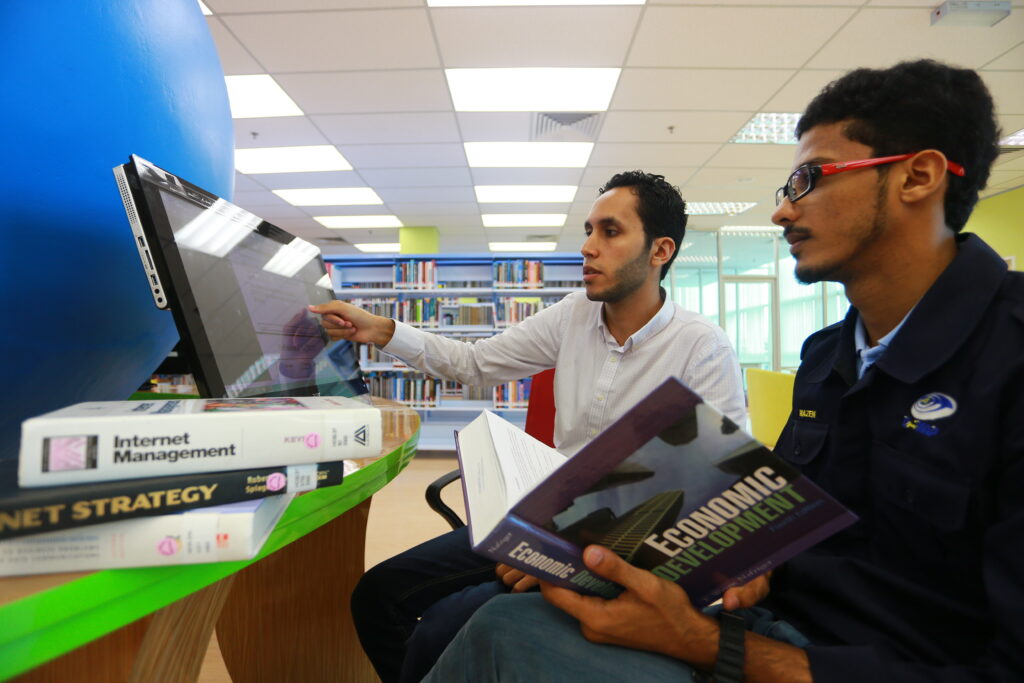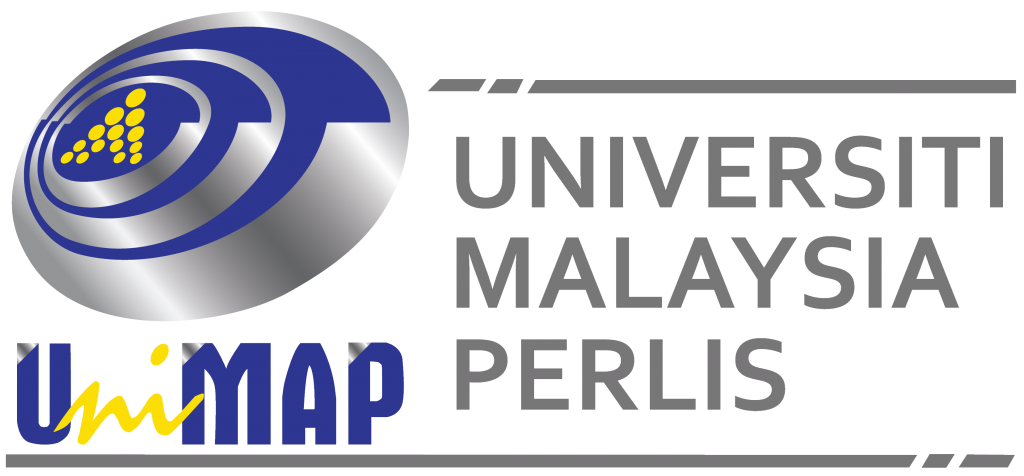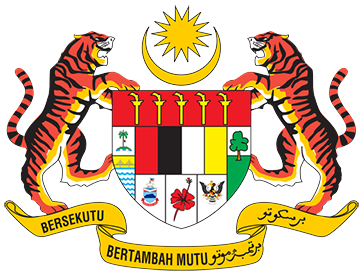Diploma In Electrical Engineering
Diploma Kejuruteraan Elektrik
- Overview
- Career Path
- Subject
- Fees / Entry Requirement
This program is committed in producing semi -skilled manpower with a strong knowledge in Electrical Engineering field. Diploma graduates are trained to become Assistant Electrical Engineers with capability in performing duties in various fields, including, but not limited to production, construction, maintenance, sales, consultation, education and training. During study period, graduates will be exposed to the use of equipment, equivalent in the industry. Graduates are also capable of performing management tasks that require the ability to make careful and accurate judgements. Graduates will have the opportunity to further their studies at the undergraduate level at local or foreign universities and eligible to sit for the competency examination with the Energy Commission (ST).
Graduates of the Diploma in Electrical Engineering have broad job prospects either in private companies, industry, government departments and statutory bodies.
1
Technician / Assistant Process & Production Engineer
2
Technician / Assistant Production and Manufacturing Engineer
3
Electrical Maintenance Technician/ Assistant Engineer
4
Semiconductor Technician/ Assistant Engineer
5
Electrical Engineering Consulting Firm
6
Research Assistant
The Diploma in Electrical Engineering is three years (six semesters) full-time programme offered by the FKTE UniMAP. The programme provides depth, breadth and flexibility to a curriculum taught by field experts and accredited by MQA and following the Engineering Technology Accreditation Council – Board of Engineer Malaysia ETAC-BEM Manual 2020. In general, the syllabus and curriculum content must be adequate in quality and quantity in terms of coverage and depth. Emphasis on the curriculum shall be placed on the understanding and acquisition of basic principles and skills of a discipline, rather than detailed memorization of facts. The curriculum shall also provide students with ample opportunities for analytical, critical, constructive, and creative thinking, and evidence-based decision making. The curriculum shall include sufficient elements for training students in rational thinking.
- EDJ12002 Electrical Engineering Skills
- EDJ12102 Computer Programming
- EDJ12202 Engineering Science
- EDJ12302 Computer Aided Drafting
- EDJ12403 Digital System
- EDJ12503 Electric Circuit Fundamental I
- EDJ12603 Electronic Devices
- EDJ12703 Microcontroller
- EDJ22003 Electric Circuit Fundamental II
- EDJ22103 Programmable Logic Controller
- EDJ22203 Analogue Electronics
- EDJ22303 Electrical Instrumentation and Measurement
- EDJ22403 Power System I
- EDJ22503 Electrical Installation Design
- EDJ22603 Control Principle
- EDJ22703 Electrical Machine and Application
- EDJ32003 Power System II
- EDJ32103 Power Electronic
- EDJ32203 Power System Commissioning and Maintenance Practice
- EDJ32304 Final Year Project
- EDJ30002 Industrial Safety, Quality Management and Ethics
- EDJ30108 Industrial Training
COMMON CORES:
- SDQ10103 Mathematics I
- SDQ20203 Mathematics II
- SDQ20303 Mathematics III
- SDU12302 Skill and Technology In Communication
UNIVERSITY REQUIRED COURSES:
- SDB10102 Communicative English 1
- SDB20102 Communicative English 1
- SDB30102 Communicative English 3
- SDB41002 Malay Language
- SDU12902 Philosophy and Current Issues
- SDU22402 Engineering Entrepreneurship
- SDZ11XX1 Uniformed Body I
- SDZ12XX1 Uniformed Body II
Click button below for more details on education fees and entry requirements.
- Programme Objectives (PEO)
- Programme Outcome (PO)
The Program Educational Objectives for the Diploma in electrical engineering program at Universiti Malaysia Perlis (UniMAP) is as follows:
1
Graduates are competence in electrical engineering field as demonstrated through career progression.
2
Graduates who are involved in community or professional organization and make contribution towards society.
3
Graduates pursue continuing education opportunities.
4
Graduates make contribution through innovation and entrepreneurship.
1
Knowledge: Apply knowledge of applied mathematics, applied science, engineering fundamentals and an engineering specialization to wide practical procedures and practices.
2
Problem analysis: Identify and analyse well-defined engineering problems reaching substantiated conclusions using codified methods of analysis specific to their field of activity.
3
Design/development of solutions: Design solutions for well-defined technical problems and assist with the design of systems, components or processes to meet specified needs with appropriate consideration for public health and safety, cultural, societal, and environmental considerations.
4
Investigation: Conduct investigations of well-defined problems; locate and search relevant codes and catalogues, conduct standard tests and measurements.
5
Modern Tool Usage: Apply appropriate techniques, resources, and modern engineering and IT tools to well-defined engineering problems, with an awareness of the limitations.
6
The Engineer and Society: Demonstrate knowledge of the societal, health, safety, legal and cultural issues and the consequent responsibilities relevant to engineering technician practice and solutions to well-defined engineering problems.
7
Environment and Sustainability: Understand and evaluate the sustainability and impact of engineering technician work in the solution of well-defined engineering problems in societal and environmental contexts
8
Ethics: Understand and commit to professional ethics and responsibilities and norms of technician practice.
9
Individual and Teamwork: Function effectively as an individual, and as a member in diverse technical teams.
10
Communications: Communicate effectively on well-defined engineering activities with the engineering community and with society at large, by being able to comprehend the work of others, document their own work, and give and receive clear instructions.
11
Project Management and Finance: Demonstrate knowledge and understanding of engineering management principles and apply these to one’s own work, as a member or leader in a technical team and to manage projects in multidisciplinary environments.
12
Life-Long Learning: Recognise the need for, and have the ability to engage in independent updating in the context of specialised technical knowledge.

Quick Points
Campus:
Kampus Alam Pauh Putra, Perlis
Programme Code:
R2420 (intake 2013 – 2019)
UR4522001 (intake 2020 - curent)
Specialisation
Electrical Power, Electrical Installation, Instrumentation and Measurement
Study Level:
Diploma
Intake:
August
Duration:
3 Years
- Overview
This program is committed in producing semi -skilled manpower with a strong knowledge in Electrical Engineering field. Diploma graduates are trained to become Assistant Electrical Engineers with capability in performing duties in various fields, including, but not limited to production, construction, maintenance, sales, consultation, education and training. During study period, graduates will be exposed to the use of equipment, equivalent in the industry. Graduates are also capable of performing management tasks that require the ability to make careful and accurate judgements. Graduates will have the opportunity to further their studies at the undergraduate level at local or foreign universities and eligible to sit for the competency examination with the Energy Commission (ST).
Career Path
Graduates of the Diploma in Electrical Engineering have broad job prospects either in private companies, industry, government departments and statutory bodies.
1
Technician / Assistant Process & Production Engineer
2
Technician / Assistant Production and Manufacturing Engineer
3
Electrical Maintenance Technician/ Assistant Engineer
4
Semiconductor Technician/ Assistant Engineer
5
Electrical Engineering Consulting Firm
6
Research Assistant
Subject
The Diploma in Electrical Engineering is three years (six semesters) full-time programme offered by the FKTE UniMAP. The programme provides depth, breadth and flexibility to a curriculum taught by field experts and accredited by MQA and following the Engineering Technology Accreditation Council – Board of Engineer Malaysia ETAC-BEM Manual 2020. In general, the syllabus and curriculum content must be adequate in quality and quantity in terms of coverage and depth. Emphasis on the curriculum shall be placed on the understanding and acquisition of basic principles and skills of a discipline, rather than detailed memorization of facts. The curriculum shall also provide students with ample opportunities for analytical, critical, constructive, and creative thinking, and evidence-based decision making. The curriculum shall include sufficient elements for training students in rational thinking.
- EDJ12002 Electrical Engineering Skills
- EDJ12102 Computer Programming
- EDJ12202 Engineering Science
- EDJ12302 Computer Aided Drafting
- EDJ12403 Digital System
- EDJ12503 Electric Circuit Fundamental I
- EDJ12603 Electronic Devices
- EDJ12703 Microcontroller
- EDJ22003 Electric Circuit Fundamental II
- EDJ22103 Programmable Logic Controller
- EDJ22203 Analogue Electronics
- EDJ22303 Electrical Instrumentation and Measurement
- EDJ22403 Power System I
- EDJ22503 Electrical Installation Design
- EDJ22603 Control Principle
- EDJ22703 Electrical Machine and Application
- EDJ32003 Power System II
- EDJ32103 Power Electronic
- EDJ32203 Power System Commissioning and Maintenance Practice
- EDJ32304 Final Year Project
- EDJ30002 Industrial Safety, Quality Management and Ethics
- EDJ30108 Industrial Training
COMMON CORES:
- SDQ10103 Mathematics I
- SDQ20203 Mathematics II
- SDQ20303 Mathematics III
- SDU12302 Skill and Technology In Communication
UNIVERSITY REQUIRED COURSES:
- SDB10102 Communicative English 1
- SDB20102 Communicative English 1
- SDB30102 Communicative English 3
- SDB41002 Malay Language
- SDU12902 Philosophy and Current Issues
- SDU22402 Engineering Entrepreneurship
- SDZ11XX1 Uniformed Body I
- SDZ12XX1 Uniformed Body II
Fees / Entry Requirement
Click button below for more details on education fees and entry requirements.
Programme Objectives (PEO)
The Program Educational Objectives for the Diploma in electrical engineering program at Universiti Malaysia Perlis (UniMAP) is as follows:
1
Graduates are competence in electrical engineering field as demonstrated through career progression.
2
Graduates who are involved in community or professional organization and make contribution towards society.
3
Graduates pursue continuing education opportunities.
4
Graduates make contribution through innovation and entrepreneurship.
Programme Outcome (PO)
1
Knowledge: Apply knowledge of applied mathematics, applied science, engineering fundamentals and an engineering specialization to wide practical procedures and practices.
2
Problem analysis: Identify and analyse well-defined engineering problems reaching substantiated conclusions using codified methods of analysis specific to their field of activity.
3
Design/development of solutions: Design solutions for well-defined technical problems and assist with the design of systems, components or processes to meet specified needs with appropriate consideration for public health and safety, cultural, societal, and environmental considerations.
4
Investigation: Conduct investigations of well-defined problems; locate and search relevant codes and catalogues, conduct standard tests and measurements.
5
Modern Tool Usage: Apply appropriate techniques, resources, and modern engineering and IT tools to well-defined engineering problems, with an awareness of the limitations.
6
The Engineer and Society: Demonstrate knowledge of the societal, health, safety, legal and cultural issues and the consequent responsibilities relevant to engineering technician practice and solutions to well-defined engineering problems.
7
Environment and Sustainability: Understand and evaluate the sustainability and impact of engineering technician work in the solution of well-defined engineering problems in societal and environmental contexts
8
Ethics: Understand and commit to professional ethics and responsibilities and norms of technician practice.
9
Individual and Teamwork: Function effectively as an individual, and as a member in diverse technical teams.
10
Communications: Communicate effectively on well-defined engineering activities with the engineering community and with society at large, by being able to comprehend the work of others, document their own work, and give and receive clear instructions.
11
Project Management and Finance: Demonstrate knowledge and understanding of engineering management principles and apply these to one’s own work, as a member or leader in a technical team and to manage projects in multidisciplinary environments.
12
Life-Long Learning: Recognise the need for, and have the ability to engage in independent updating in the context of specialised technical knowledge.



